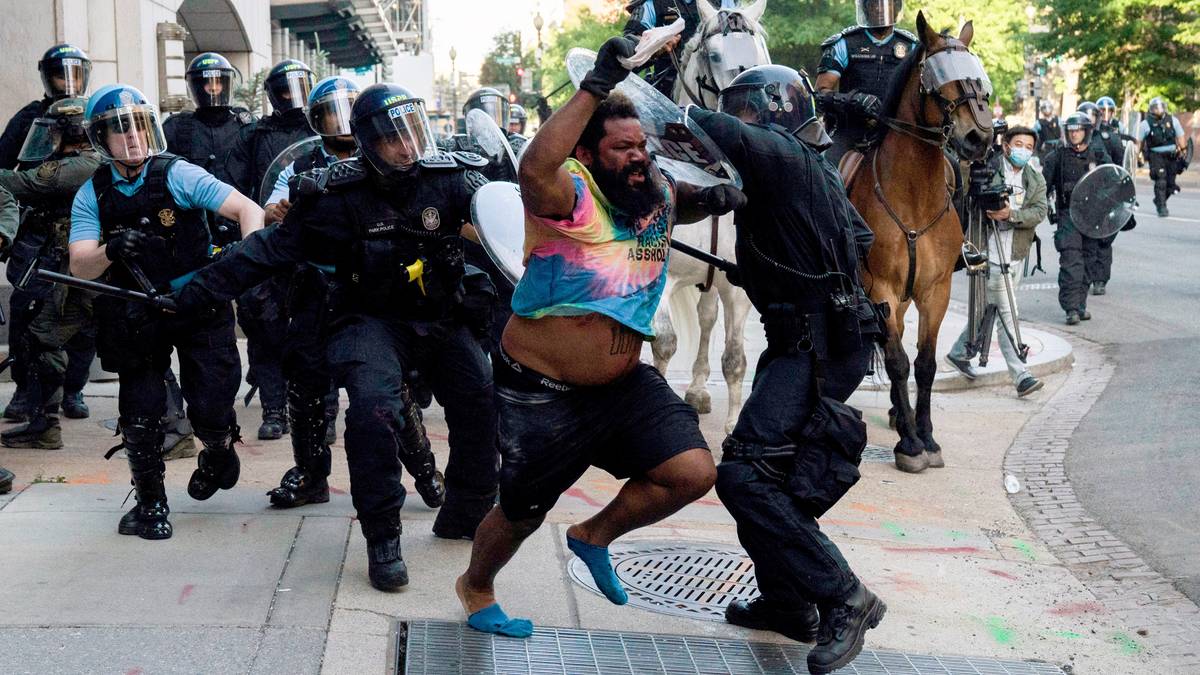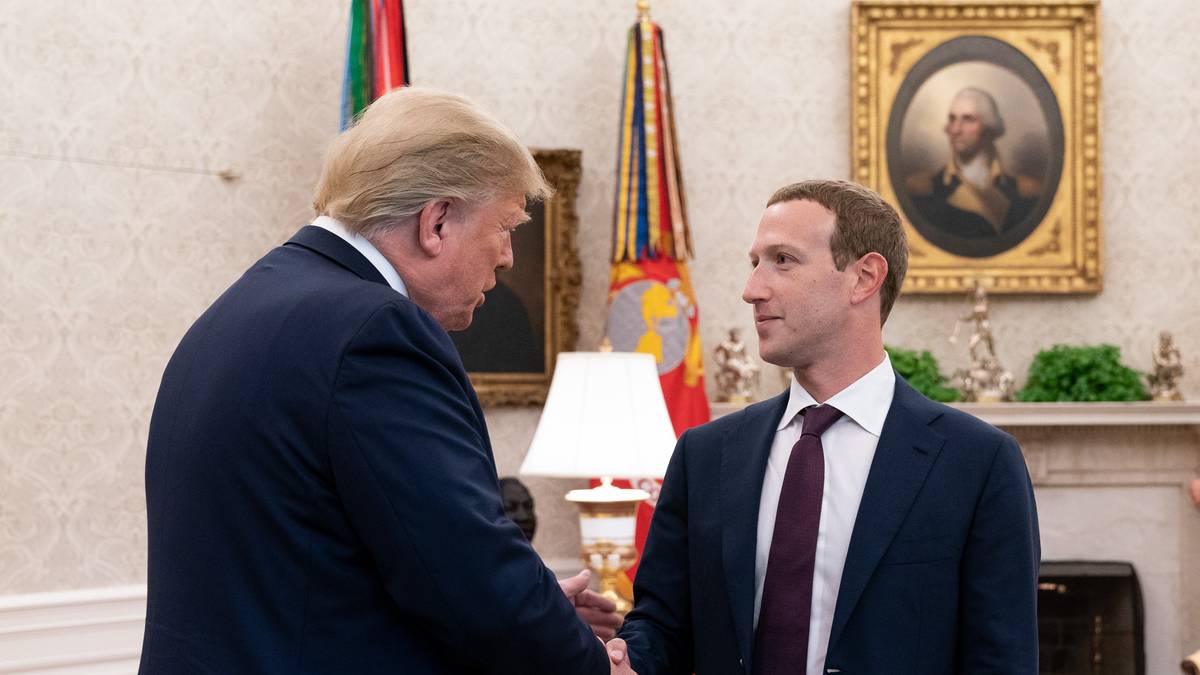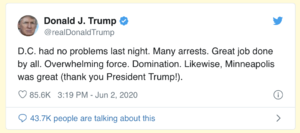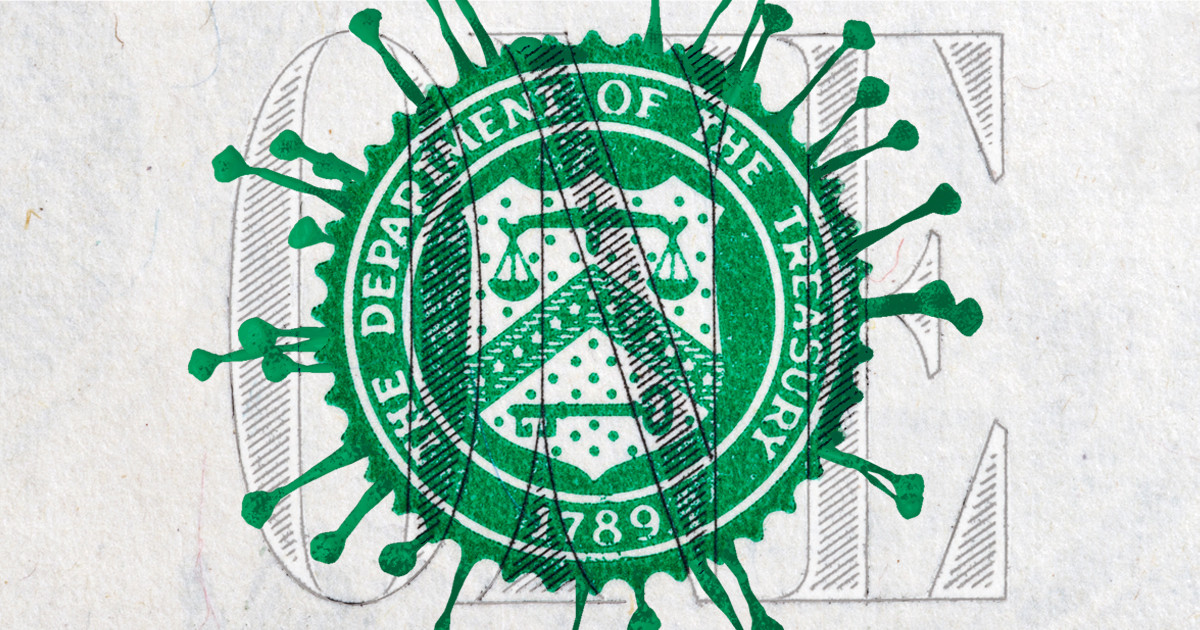Antifa and anarchists have hijacked Floyd protests, but the left won't admit it
Democrats and the media still refuse to face the facts.

thehill.com
© Getty Images
Ian Fleming famously lamented that history often moves so quickly that “heroes and villains keep on changing parts.” Our media and politicians are struggling with the same problem today, following the killing of George Floyd. As rioting and looting continued across the country, the question became who to blame for the mayhem. Ultimately, the response was strikingly familiar and telling: Maybe the Russians did it. Well, not just the Russians but maybe
white supremacists or foreign terrorists, too, anyone except people in the rioting communities or, worse yet, groups long lionized or tolerated by the left.
While most protesters remained peaceful, the narrative of peaceful protests quickly grew glaringly out of sync with images of buildings burning in the background. Although NBC “Today” show host Craig Melvin previously tweeted out a “guide” not to refer to them as “rioters” but rather as “protesters,” that narrative has since broken down.
Last Friday, news outlets began reporting that “outsiders” were fueling the rioting and that the destruction might be the work of nefarious groups of “white supremacists” and “Russians.” Gov. Tim Walz (D-Minn.) and other officials there claimed a majority of arrestees were “outsiders,” with Walz putting the estimate at 80 percent.
On CNN, National Urban League President Marc Morial ratcheted up the outrage. He demanded an investigation to confirm “if it is white supremacists, if it is Russians, if it is other foreign actors who have tried to exploit the pain and exploit legitimate protests.”
Of course, it was manifestly implausible to suggest the widespread, spontaneous rioting was the work of white supremacists or Russians. Indeed, within 24 hours, arrest data showed a majority of those arrested in Minneapolis were from the city. The four people arrested in New York in firebombing attacks were all New York state residents -- two from Brooklyn itself.
The problem is that the most obvious culprits were all-too-well-known to many politicians and the media. A movement of self-described anti-fascist, anarchist and extreme-left groups has been building for years, with a litany of violent encounters from Washington to Berkeley. The most prominent is known as "antifa" but there also are groups like “By All Means Necessary” with similar histories of militancy.
This is a broad movement rather than one group, which makes
President Trump's suggested designation of antifa as a terrorist organization both practically and constitutionally dubious. However, the growing anti-fascist movement has attacked conservative speakers and events for years, with far less media attention than their far-right counterparts receive. Just as critics accuse Trump of not doing enough to denounce far-right groups, many Democratic leaders have been conspicuously silent in denouncing these groups.
In fact, when Attorney General
William Barr correctly observed that the riots show “
antifa-like tactics,” politicians and media figures both balked at the suggestion – as opposed to accepting the Russian or white-supremacist option. Despite reports of antifa followers and anarchists being arrested over the weekend, PBS NewsHour's White House correspondent, Yamiche Alcindor, objected Monday at the press conference that there was “no evidence” of any activity sparked by “anarchists.”
Antifa, BAMN and other militant or anarchist groups have disrupted universities across the country (including my own) for years, and have found many political and academic allies. Dartmouth Professor Mark Bray's book, “Antifa: The Anti-Fascist Handbook,” defined it as committed to the silencing of opponents and the rejection of classic concepts of free speech. The movement has since found open or passive acceptance with many on the academic left.
In fairness, many Democratic politicians have denounced past violent attacks. Yet despite its violent history and tactics, some Democratic leaders have been enablers or outright supporters of the antifa movement -- insisting that such groups cannot be compared to far-right groups.
While criticizing some antifa members on 2017, House Speaker Nancy Pelosi (D-Calif.) insisted: “Look, people are out there 'heiling Hitler,' and then you have a group that is antifa — anti-fascist. They’ve been there forever — some people may have infiltrated them. We’ll see. But that is not an equivalence, in my view.” This was not viewed as Pelosi’s “Charlottesville moment” of claiming there are “very fine people" in antifa. It was a commonly held view that self-proclaimed anti-fascists are by definition are better than fascists.
Other Democratic leaders have been more direct in their support, including the then-deputy chair of the Democratic Party, Rep. Keith Ellison (D-Minn.). Although Germany
banned an antifa website as an extremist organization, Ellison posed with the "Antifa" handbook to show support at a Minneapolis bookshop and said it would “strike fear in the heart of @realDonaldTrump.”
This week, Ellison, now Minnesota's state attorney general, was under fire for telling protesters they should not attack the National Guard on the streets or “react to them the way you might react to the Minneapolis Police Department. It’s not the same group … their job is to try to bring peace and calm back again.” His son, Minneapolis city council member Jeremiah Ellison, declared support for antifa this week even as the city endured looting and rioting.
Meanwhile, some media coverage has the uncomfortable feel of a new type of Russia collusion theory. Obama administration national security adviser Susan Rice told CNN that she suspects Russia is
behind the effort “to hijack those protests and turn them into something very different” and that, based “on my experience, this is right out of the Russian playbook.”
Of course, it is likely that racist or foreign actors will try to exploit the unrest on the internet. The same was true, on a larger scale, with Russian interference in the 2016 presidential election. Yet, while most of us denounced the Russians' interference, it was never plausible that the work of 13 internet trolls in Saint Petersburg, Russia, or 12 military hackers in Moscow had a measurable, let alone meaningful, impact on the election.
The same is true with these protests. The rioting began almost immediately due to deep-seated and legitimate anger over police brutality and Floyd's tragic death. Young people and others did not rush to the streets because they read a posting from some skinhead on the Stormfront website. Yet, the references to white supremacists or Russians continued even as reports filtered in of antifa and anarchists being arrested in various cities.
Some politicians like Ellison clearly sought in prior years to tap into the “anti-fascist movement.” Others have avoided denouncing the group. After all, for years, the movement just threatened or attacked conservatives. They were not treated as an “outside” element but, rather, as a grassroot movement outraged by Trump and his policies. Now, however, the same tactics and likely some of the same people are burning police cruisers, attacking police officers and shopkeepers, and destroying property across the country. This is why, during the French Revolution, the journalist Jacques Mallet du Pan warned, “Like Saturn, the Revolution devours its children.”
Jonathan Turley













